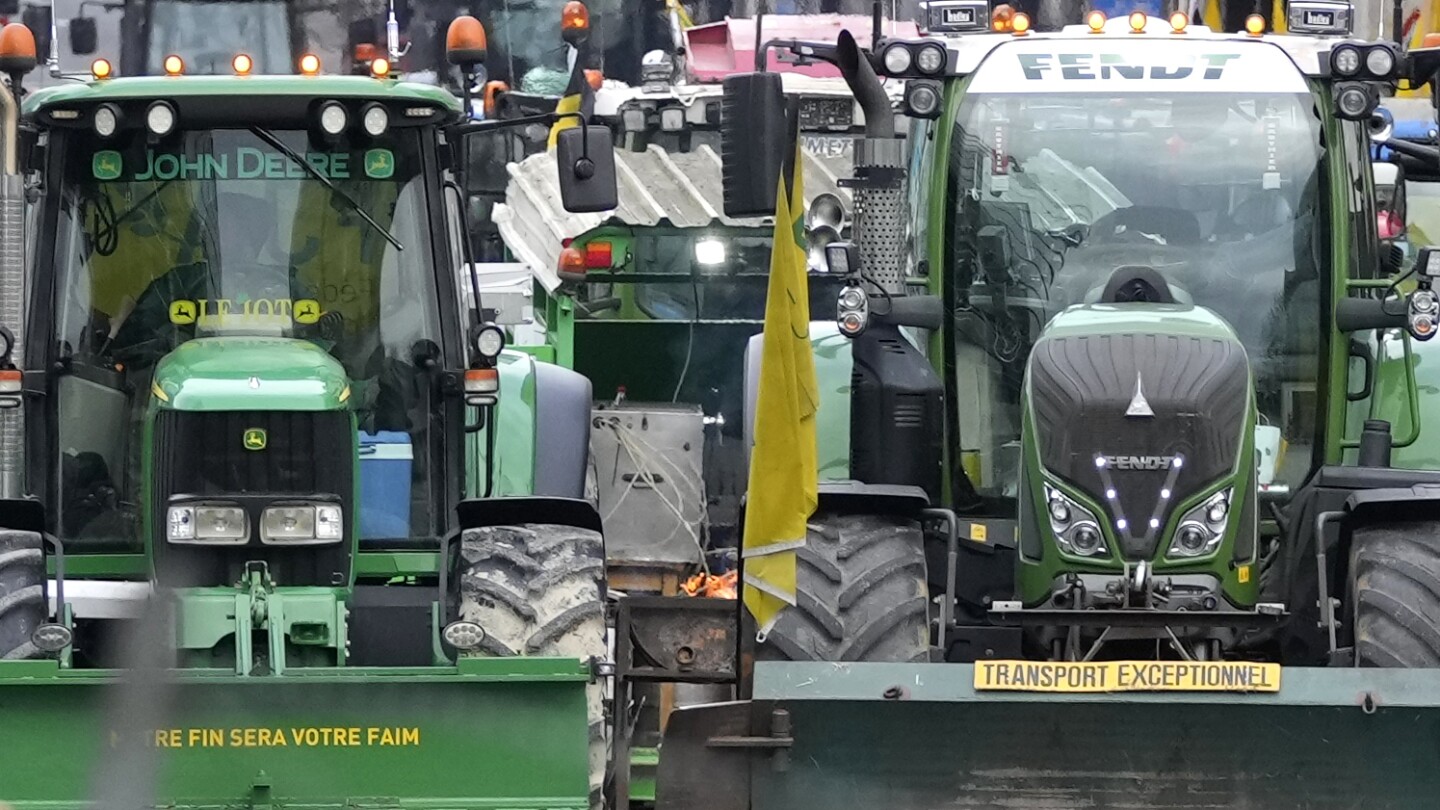BRUSSELS (AP) — Dozens of tractors on Tuesday sealed off streets close to European Union headquarters where the 27 EU agriculture ministers were planning to discuss the crisis in the sector that has led to months of protests across the bloc.
The farmers were protesting anything from what they see as excessive red tape to increased environmental measures, cheap imports and unfair trading practices. “Let us make a living from our profession,” read one billboard on a huge tractor blocking a main thoroughfare.
Even if smaller than previous demonstrations, the impact on the Belgian capital was sizable during the morning rush hour, and authorities asked commuters to stay out of Brussels and work from home as much as possible.
With protests taking place from Finland to Greece, Poland, and Ireland, the farmers have already won a slew of concessions from EU and national authorities, from a loosening of controls on farms to a weakening of pesticide and environmental rules.
Earlier this month, the European Commission, the EU’s executive arm, proposed weakening or cutting rules in areas like crop rotation, soil cover protection and tillage methods. Small farmers, representing some two-thirds of the workforce and the most active within the continent-wide protest movement, will be exempt from some controls and penalties under the new rules.
Environmentalists and climate activists say the change in EU policies under the duress of protesting farmers is regrettable. They say the short-term concessions will come to haunt the bloc in a generation when climate change will hit the continent even harder.
Politically, the bloc has moved to the right over the past year. The plight of farmers has become a rallying cry for populists and conservatives who claim EU climate and farm policies are little more than bureaucratic bungling from elitist politicians who have lost any feeling for soil and land.

